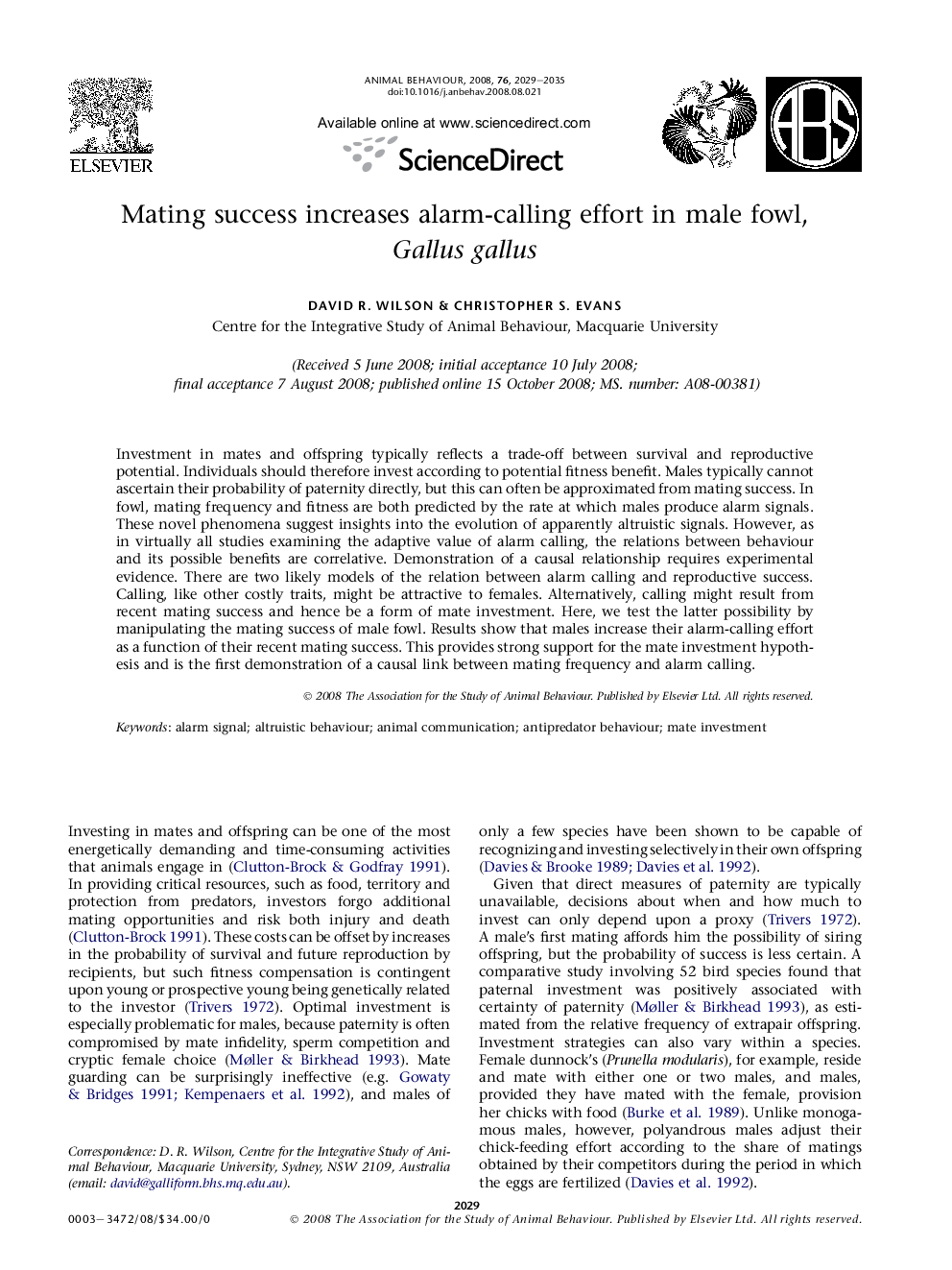| Article ID | Journal | Published Year | Pages | File Type |
|---|---|---|---|---|
| 2418506 | Animal Behaviour | 2008 | 7 Pages |
Investment in mates and offspring typically reflects a trade-off between survival and reproductive potential. Individuals should therefore invest according to potential fitness benefit. Males typically cannot ascertain their probability of paternity directly, but this can often be approximated from mating success. In fowl, mating frequency and fitness are both predicted by the rate at which males produce alarm signals. These novel phenomena suggest insights into the evolution of apparently altruistic signals. However, as in virtually all studies examining the adaptive value of alarm calling, the relations between behaviour and its possible benefits are correlative. Demonstration of a causal relationship requires experimental evidence. There are two likely models of the relation between alarm calling and reproductive success. Calling, like other costly traits, might be attractive to females. Alternatively, calling might result from recent mating success and hence be a form of mate investment. Here, we test the latter possibility by manipulating the mating success of male fowl. Results show that males increase their alarm-calling effort as a function of their recent mating success. This provides strong support for the mate investment hypothesis and is the first demonstration of a causal link between mating frequency and alarm calling.
